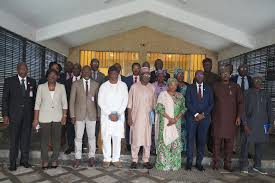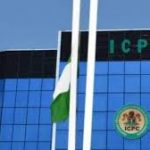The Universal Basic Education Commission (UBEC) has reaffirmed its commitment to promoting transparency and accountability in Nigeria’s basic education system through a renewed partnership with the Independent Corrupt Practices and Other Related Offences Commission (ICPC).
At a strategic meeting in Abuja, both agencies emphasized the need for stronger collaboration to ensure that funds allocated to basic education are properly utilized for their intended purposes. The renewed alliance is part of broader efforts to enhance integrity in the education sector, improve service delivery, and strengthen public trust in line with the Renewed Hope Agenda of President Bola Tinubu.
UBEC, which oversees the implementation of the Universal Basic Education programme across the 36 states and the Federal Capital Territory, pledged to ensure that every Nigerian child of school age has access to free and quality basic education. Executive Secretary, Aisha Garba, noted that corruption and mismanagement of funds remain major challenges to achieving this goal, adding that the Commission is introducing reforms to address them.
Garba said the partnership with ICPC will build on UBEC’s ongoing reforms, particularly through the establishment of Anti-Corruption and Transparency Units (ACTUs). These units are tasked with enforcing compliance with procurement and financial regulations, promoting ethical conduct, and preventing misuse of public funds. “The partnership will strengthen delivery of free, quality basic education from pre-primary to junior secondary, ensuring funds are used for intended purposes. Through ACTUs, strict compliance with the Procurement and Finance Acts, and continuous capacity-building, UBEC continues to champion integrity in public service,” she stated.
The UBEC Executive Secretary further explained that accountability mechanisms form a key pillar of the Universal Basic Education programme, which covers pre-primary, primary, and junior secondary levels. By ensuring that resources are properly managed, the Commission aims to bridge infrastructure gaps, improve learning outcomes, and guarantee that millions of Nigerian children benefit fully from the policy.
The ICPC, established in 2000, continues to play a crucial role in promoting ethical governance across public institutions. Over the years, it has partnered with several government bodies to strengthen internal controls, encourage whistleblowing, and build the capacity of public servants in compliance and accountability.
Education experts have often linked slow progress in the sector to issues of corruption, particularly in project implementation and fund disbursement. Instances of abandoned school projects, incomplete classrooms, and misused intervention funds have fueled calls for greater transparency in education financing. The UBEC-ICPC collaboration is therefore seen as a strategic step toward addressing these systemic challenges.
According to UBEC data, the Commission disburses billions of naira annually to state governments through matching grants for projects such as infrastructure development, teacher training, and instructional materials. However, the success of these interventions depends heavily on transparency and efficient fund management at the state and local government levels.
UBEC has also begun digitizing its monitoring and evaluation processes to improve real-time tracking of projects and reduce human interference. The Commission continues to engage civil society organisations, community groups, and development partners to promote transparency and community participation in school development projects.
Both UBEC and ICPC reiterated that the ultimate goal of their partnership is to ensure that no child is left behind in accessing quality education. By fostering transparency, accountability, and integrity, they aim to build a more sustainable and credible foundation for Nigeria’s educational future.
The meeting concluded with a joint resolution to sustain the collaboration through regular audits, staff training on ethical standards, and public awareness campaigns promoting anti-corruption practices in education.










